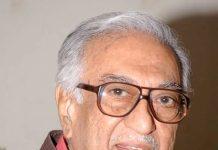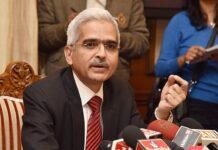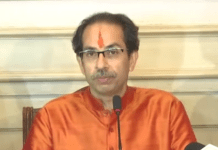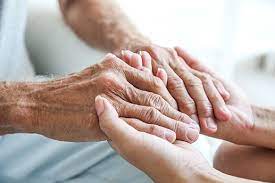For successful establishment and provision of a robust social care system for elderly in India a number of factors are going to be important. Firstly, specialized and free medical healthcare system needs to be in place. The government is soon launching a free healthcare scheme called Ayushman Bharat to cater to 100 million families selected based upon an income-based census. This is a promising step and if successful it will be beneficial to the large elderly population especially in rural areas. Secondly, well- trained social care providers (apart from medical professionals) are going to be imperative to be able to efficiently deliver social care services to the elderly.
India is one of the largest countries in the world with a total population of 1.35 billion and this number is expected to reach 1.7 billion by 2050. India is expected to surpass China’s population by 2024 and become the most populous country on the planet.
Life expectancy at birth has increased by more than 10 years in the past two decades and is now around 65 years mainly due to improved healthcare services which have contributed in controlling infant and child mortality, eradication of life-threatening diseases and better nutrition. Most adults in India now have a minimum of 10 years post their retirement from work. Age-wise population distribution of India shows that around 6% of total population is over 65 years of age. 1 out of every 5 people i.e. around 300 million people will be over 60 years of age by 2050, while the number of over-80s will increase seven-fold. This largest growing segment of India’s elderly population is also the most vulnerable on account of suffering from disabilities, diseases, illnesses and mental disorders.
Social care sector is an integral part of a country’s economic growth. This sector provides physical, emotional and social support via specialized services to children or adults with special needs and elderly people. These people are at different stages in their lives, are at risk or have special needs arising from illness, disability, old age or poverty. They require healthcare services by trained medical professionals in hospitals or residence. They need care and support by trained caregivers to lead independent daily lives with control and dignity. Social care services can be provided in a person’s own home, a day center or a care home.
Providing care and support to elderly population is a significant component of the social care sector. In India, where the elderly population is growing at a very high rate of 500%, it is important to understand how this burgeoning population can be provided proper social care in the last decades of their life.
Elderly people face age-related additional needs and challenges. They have physical, medical, social, emotional and spiritual needs. As they near 75-80 years of age, they need assistance and care in their daily routine which helps them to stay independent with respect while accepting help for daily tasks which have become difficult to perform. Mobility is very important to the elderly and a good mode of transportation is beneficial.
Elderly have higher medical needs to remain healthy and comfortable including proper nutrition and timely delivery of health services. They also have intellectual and social needs therefore they need to communicate with others and do tasks which they enjoy otherwise they feel isolated and vulnerable. Depression is very common in elderly because they have lost their sense of belonging after completing much of their life and they may experience feelings of loss.
The socio-economic and gender disparity in a developing country like India makes the seniors more vulnerable to depravity, abuse and social exclusion. A principal concern for elderly in India is the financial constraints to meet their healthcare expenses as most of it has to be managed out-of-pocket.
Current public healthcare infrastructure and services including geriatric care is very limited. Good healthcare and decent old age homes are mostly concentrated to urban areas neglecting the rural population which is almost 67 % of the population. In rural areas, limited mobility, difficult terrain and limited financial ability impedes access to healthcare by elderly.
A critical issue faced by majority of elderly in India is financial dependency. The traditional joint family system of India which has been the main shelter for people in old age has been disintegrating in wake of rapid urbanization and modernization which is leading to more nuclear families. Education and employment have changed the social fabric of the country in the past decades.
These trends in society have a direct impact on the elderly. They are vulnerable to physical and psychological abuse, they suffer from anxiety and depression and need access to mental health services. There is remarkable disparity in demographic, gender and economical characteristics of the elderly in India. The breakdown in India’s cultural and traditional systems are resulting in a more individualistic society which is contributing to social isolation of elderly and making them more vulnerable.
For successful establishment and provision of a robust social care system for elderly in India a number of factors are going to be important. Firstly, specialized and free medical healthcare system needs to be in place. The government is soon launching a free healthcare scheme called Ayushman Bharat to cater to 100 million families selected based upon an income-based census. This is a promising step and if successful it will be beneficial to the large elderly population especially in rural areas.
Secondly, well- trained social care providers (apart from medical professionals) are going to be imperative to be able to efficiently deliver social care services to the elderly. This could be either in their own home or at specialized care homes or centers. Currently India lacks any such infrastructure or human resource.Once the infrastructure is established, it is also crucial to devise stringent policies and monitor practice ethics in social care.
***






















